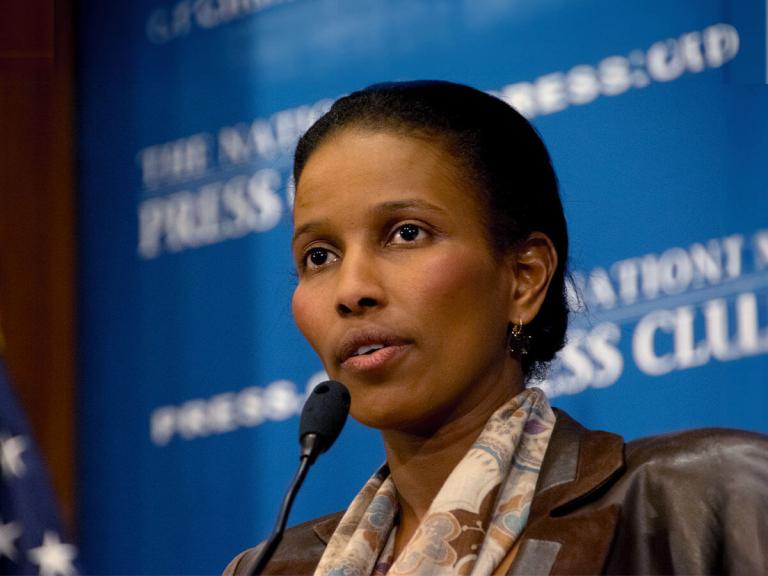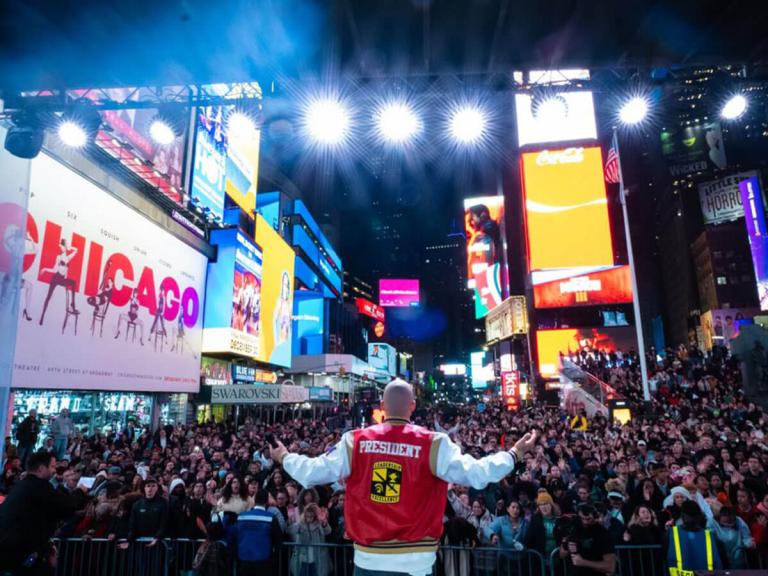
For twenty years, Ayaan Hirsi Ali has been in the spotlight, warning the public against the dangers of Islam and encouraging a rational, humanistic approach. Decades ago, Ali had sought asylum in the Netherlands after her family had tried to force her into an arranged marriage. In 2001, she was shocked by the attacks against the United States as the Pentagon and World Trade Center were brought down by terrorists spouting the glories of Islam. By 2002, she had rejected the Islamic faith she had once embraced and became part of the “new atheists,” with thinkers such as Richard Dawkins and Christopher Hitchens. She became a politician in the Netherlands, serving as an MP in the Netherlands’s liberal The People’s Party for Freedom and Democracy (VVD). She was eventually forced into hiding after assisting with the film “Submission” when the film’s maker, Theo van Gogh, was killed by a radical Muslim. She has lived in the United States since 2006, where she has continued to push against religious radicalism, particularly in Islam.
Yet it appears that Ali has now left her atheism behind as she recently released an op-ed for Unheard entitled “Why I am Now a Christian.” Ali revealed that the talks by Bertrand Russell, “Why I am not a Christian,” released her from accepting the religion of Islam that had led to the 9/11 attacks, as well as her fear of Hell. “It was a relief to adopt an attitude of scepticism towards religious doctrine, discard my faith in God and declare that no such entity existed. Best of all, I could reject the existence of hell and the danger of everlasting punishment,” she wrote. She shared that the breaking away from Islam was a relief after she had been radicalized by it. She noted she was raised with an especial hatred towards Jews. “Here, a special hatred was reserved for one subset of unbelievers: the Jew. We cursed the Jews multiple times a day and expressed horror, disgust and anger at the litany of offences he had allegedly committed. The Jew had betrayed our Prophet. He had occupied the Holy Mosque in Jerusalem. He continued to spread corruption of the heart, mind and soul.” Reflecting on how Russell’s words changed all that, she wrote, “You can see why, to someone who had been through such a religious schooling, atheism seemed so appealing.”
Yet, despite having been an atheist for twenty years, Ali shared what had changed for her. Noting the worldwide dangers of China, Russia, and declining Western Civilization, she said that problem was much deeper than needing better armies or more money. What was needed was a uniting force found in the Judeo-Christian values of the nation. Those values, according to Ali, had granted the freedom of speech that allowed Russell to speak out against Christianity. She noted that such a talk entitled “Why I am no longer a Muslim” would be dangerous in the Arab world. That foundation of Judeo-Christian values was essential to the freedoms enjoyed today, as Ali wrote:
To me, this freedom of conscience and speech is perhaps the greatest benefit of Western civilization. It does not come naturally to man… Unlike Islam, Christianity outgrew its dogmatic stage. It became increasingly clear that Christ’s teaching implied not only a circumscribed role for religion as something separate from politics. It also implied compassion for the sinner and humility for the believer.
Ali admitted that her conversion was more than just a logical one. “I have also turned to Christianity because I ultimately found life without any spiritual solace unendurable — indeed very nearly self-destructive. Atheism failed to answer a simple question: what is the meaning and purpose of life?” She said atheism has tried to fill the “God hole” with “a jumble of irrational quasi-religious dogma.” She said that Christianity offered something much more meaningful and that it “has it all.” “Of course, I still have a great deal to learn about Christianity,” she concluded. “I discover a little more at church each Sunday. But I have recognized, in my own long journey through a wilderness of fear and self-doubt, that there is a better way to manage the challenges of existence than either Islam or unbelief had to offer.”


